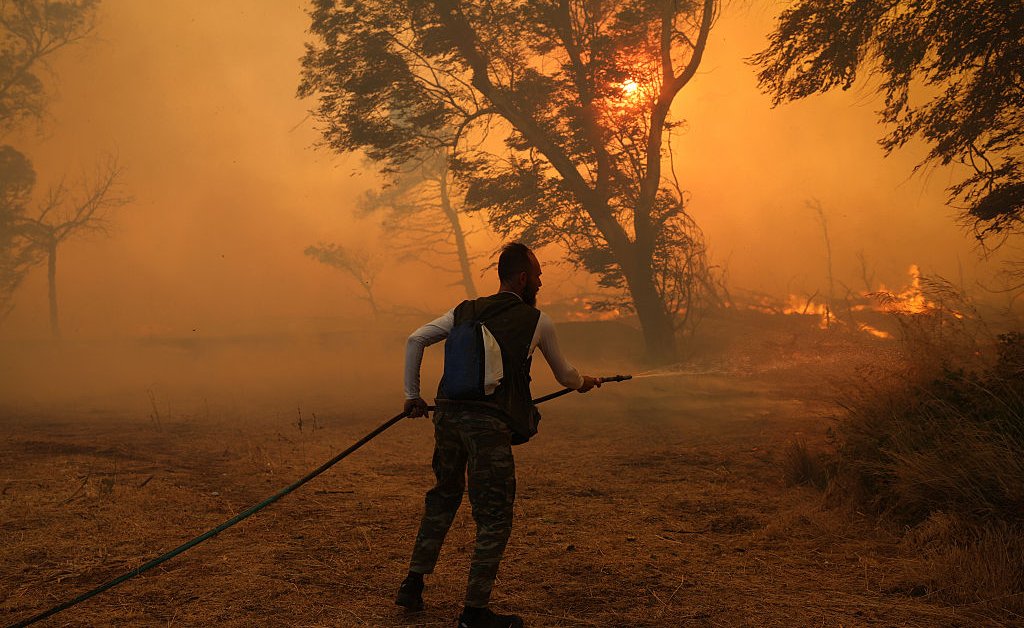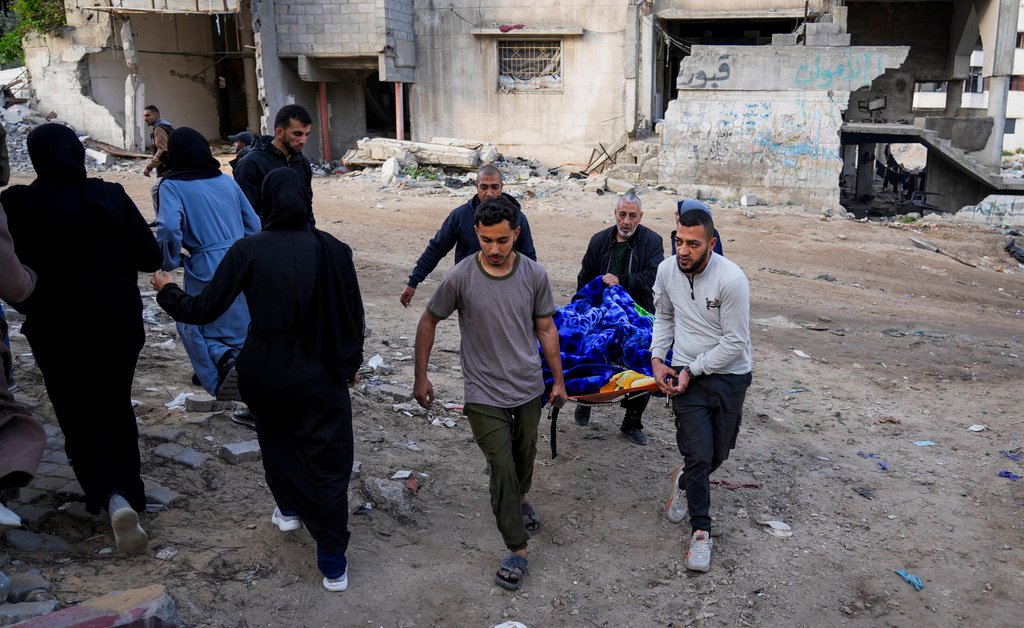Residents in suburbs of the Greek capital Athens were ordered to evacuate their homes as wildfires ravaged several parts of southern Europe over the weekend, including not only Greece but also Turkey, Bulgaria and Montenegro.
According to government authorities in Greece, the country has quelled some of the fires—especially those nearing Athens—but firefighters were battling five major blazes on Sunday amid a severe heatwave. The extreme temperatures, which reached 44 degrees C (111F) on Sunday, are forecast to continue.
“The state mechanism was called to engage in a titanic battle, simultaneously responding to dozens of wildfires across the country. Today, the situation appears improved, but the fight continues with all available resources,” noted Prime Minister Kyriakos Mitsotakis in a statement released Sunday morning, according to the Guardian. “To those who saw their properties destroyed by the fury of the fire, know that the state will stand by your side.”
Over 200 firefighters have been battling the blaze near Athens, supported by aircraft, where six firefighters have been hospitalized. There were also major fires on the islands of Kythira, Evia, and the holiday resort island, Crete.
Greece has also officially requested the help of their European Union (EU) allies and though there are reports that the fires north of Athens have been quelled by Sunday, other fires in the Peloponnese area near Messinia are not yet contained.
“The situation in most areas of operations has improved at this time, after the firefighters’ all-night battle,” stated fire department spokesperson Vasilios Vathrakoyannis. He noted “active fronts” in Kythira and Polythea, Messinia, where helicopters, aircrafts, and dozens of firefighters are working to quell flames. He continued, “We remind you that today is also expected to be a difficult day with a very high risk of fire, almost throughout the territory.”
The Greek Ministry for Climate Crisis and Civil Protections shared that six regions are still at a “very high fire risk” (risk category 4) for Monday, showing an improvement from Sunday’s 11 regions with such a designation.
The Associated Press also reported that flames have been blazing in Turkey for weeks now threaten the country’s fourth-largest city, Bursa, as the forested mountains around the city became engulfed, forcing over 1,700 civilians to evacuate on Sunday.
Orhan Saribal, a member of the Turkish Parliament wrote on social media that there are currently 3,000 fires blazing in over 50 places, and blaming the current Turkish government’s response for the severity of the fires’ impact.
Earlier this month, the World Meteorological Organization (WMO) shared that Western Europe was being influenced by a “strong high-pressure system,” which traps dry air from northern Africa and leads to “extreme” heat. The WMO added that this extreme heat would lead to elevated air pollution and wildfires—which has come to fruition this weekend. Europe had its hottest June on record this year.
The fires come after the WMO confirmed in January that 2024 was the warmest year on record, based on six international datasets—the first calendar year in which the global mean temperature was “more than 1.5°C above the 1850-1900 average.”








